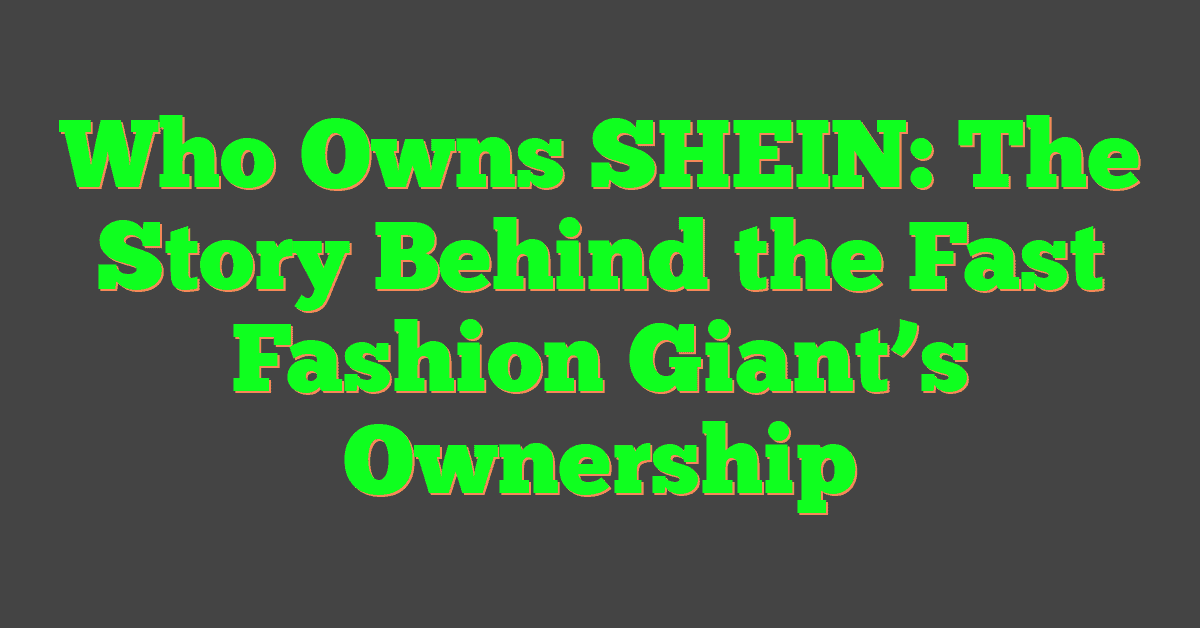When you think about Hyundai vehicles on the road today, you might wonder about the company behind these popular cars. Hyundai isn’t just a standalone car manufacturer – it’s part of a larger corporate structure with an interesting ownership story.
The Hyundai Motor Company is owned by the Hyundai Motor Group, a South Korean multinational conglomerate that also owns other well-known car brands including Kia and Genesis.

What many people don’t realize is that while Hyundai and Kia operate as separate companies, they share a connection. The Hyundai Motor Company purchased a 51% stake in Kia, though today Hyundai has reduced its ownership to approximately 33%. This relationship has allowed both companies to share technology and resources while maintaining their distinct brand identities.
Key Takeaways
- The Hyundai Motor Group is a South Korean conglomerate that owns the Hyundai Motor Company along with several other automotive brands.
- Hyundai owns about 33% of Kia Corporation, making them sister companies that share resources while maintaining separate operations.
- Beyond cars, Hyundai’s portfolio has expanded to include luxury vehicles through Genesis and innovative electric vehicles through the Ioniq brand.
History of Hyundai
Hyundai’s journey from humble beginnings to global automotive powerhouse spans over seven decades of innovation and persistence. The company’s growth reflects the vision of its founder and South Korea’s industrial development.
Founding by Chung Ju-Yung
Hyundai began with a dream and determination. Chung Ju-Yung founded Hyundai in 1947 as Hyundai Engineering and Construction Company.
Born in 1915 to a poor farming family in North Korea, Chung left home at 18 to seek better opportunities in Seoul.
His early life was marked by hard work and resilience. Despite limited formal education, Chung had extraordinary business instincts that would later transform South Korea’s industrial landscape.
The name “Hyundai” means “modernity” in Korean, reflecting the founder’s forward-thinking vision. Chung’s business philosophy centered on determination and self-reliance, qualities that became embedded in the company’s culture.
Growth and Expansion
Through the 1950s and 1960s, Hyundai expanded rapidly beyond construction. The company ventured into various industries including shipbuilding, electronics, and eventually automobiles.
Hyundai Heavy Industries, established in 1972, quickly became one of the world’s largest shipbuilders. This diversification strategy helped the company weather economic uncertainties.
International expansion began in the 1970s with construction projects in the Middle East. These overseas ventures provided valuable experience and capital for future growth.
By the 1980s, Hyundai had become a symbol of South Korea’s economic miracle. The group’s success played a significant role in transforming the country from one of the world’s poorest nations to an industrial powerhouse.
Hyundai Motor Company
Hyundai Motor Company (HMC) was established in 1967 as the automotive arm of the Hyundai group. Initially, the company assembled Ford models under license for the Korean market.
The watershed moment came in 1975 with the introduction of the Pony, Korea’s first mass-produced car. Designed with Italian styling and Japanese technology, the Pony represented Korean industrial ambition.
Hyundai entered the U.S. market in 1986 with the Excel, which set records for first-year sales of an import car brand. Early models faced quality challenges, but the company responded with dramatic improvements.
In 1998, Hyundai acquired a controlling stake in Kia Motors, forming what would become Hyundai Motor Group. Today, the group stands as one of the world’s largest automotive manufacturers with a reputation for quality and innovation.
Ownership Structure

Hyundai’s ownership structure consists of a complex network of shareholders and corporate entities that control the automotive giant. The company operates under the larger Hyundai Motor Group umbrella while various institutional and individual investors hold significant portions of its shares.
Hyundai Motor Group
Hyundai Motor Group serves as the third-largest South Korean chaebol, following Samsung and SK Group. It emerged from a specialized development split from other Hyundai-named businesses. The group functions as a parent organization that oversees various automotive brands.
KIA Corporation holds a significant stake in Hyundai, owning about 26.20% of the company. Another related company, Hyundai Rotem, also controls a portion of Hyundai Motor Company.
The group’s structure allows for shared resources, technologies, and strategic direction across its automotive holdings. This arrangement helps Hyundai compete effectively in the global market while maintaining its Korean business roots.
Shareholder Information
Hyundai Motor Company’s shareholder structure includes a mix of affiliated persons, institutional investors, and individual stakeholders.
As of the end of 2023, affiliated persons owned 29.68% of the company.
Foreign investors hold a substantial portion at 31.8%, while institutional investors control 12.32%. Individual investors make up 24.75% of the ownership structure.
Key shareholders include Hyundai Mobis Co., Ltd. with 21.86% (representing 45,782,023 shares) and the National Pension Service of Korea with 7.147% (14,967,846 shares). Mong-Koo Chung, a significant individual investor, holds 5.442% of the company.
This diverse ownership structure balances corporate control with public investment, allowing Hyundai to maintain strategic direction while benefiting from capital markets.
Brand Portfolio
Hyundai Motor Group oversees a diverse lineup of automotive brands that cater to different market segments. The company has strategically expanded beyond its original Hyundai nameplate to include both luxury and mainstream offerings.
Genesis Luxury Brand
Genesis is Hyundai Motor Group’s luxury vehicle division, launched as a standalone brand in 2015. Initially introduced as a high-end Hyundai model, Genesis now operates as its own entity with a distinct identity.
The Genesis lineup features sophisticated sedans like the G70, G80, and G90. These vehicles compete directly with established luxury brands while offering competitive pricing.
Recently, Genesis has expanded into the luxury SUV market with models like the GV70 and GV80. These vehicles showcase the brand’s “Athletic Elegance” design philosophy.
Genesis has won numerous awards for quality and customer satisfaction since its launch. The brand represents Hyundai’s upmarket ambitions and ability to create premium vehicles with distinctive styling.
Kia Motors Partnership
Kia Motors became part of the Hyundai Motor Group family when Hyundai acquired a controlling stake in 1998. While both brands share platforms and technology, they maintain separate identities with different design languages and market positioning.
Kia has transformed from a budget brand to a style-focused automaker with distinctive vehicles. Popular Kia models include the Telluride SUV, Sportage compact SUV, and K5 sedan.
The partnership allows both companies to share development costs while targeting different customer segments. This strategy has helped the group expand globally and compete effectively against larger automakers.
Kia brings youthful energy to the Hyundai portfolio with bold designs and sportier offerings. Together, Hyundai and Kia have created a comprehensive brand portfolio strategy that covers nearly every automotive segment.
Innovation and Technology

Hyundai Motor Company has positioned itself as a leader in automotive innovation through significant investments in cutting-edge technologies. Their forward-thinking approach spans multiple areas of advancement, making them competitive in the rapidly evolving transportation industry.
Electric Vehicles (EVs) Development
Hyundai has made impressive strides in the electric vehicle market with its dedicated Ioniq lineup. The Ioniq 5, Ioniq 6, and upcoming models showcase Hyundai’s commitment to sustainable transportation solutions.
The E-GMP (Electric-Global Modular Platform) serves as the foundation for Hyundai’s new generation of EVs. This innovative platform offers faster charging capabilities, longer ranges, and more interior space than conventional designs.
Hyundai’s electric vehicles feature 800-volt architecture, enabling ultra-fast charging that can take batteries from 10% to 80% in under 20 minutes. This technology addresses one of the biggest concerns for potential EV buyers – charging time.
The company has pledged to introduce 11 new electric models by 2030, demonstrating their commitment to electrification as a central part of Hyundai’s future growth strategy.
Hyundai’s Hydrogen Fuel Cell Initiatives
Hyundai stands as a pioneer in hydrogen fuel cell technology, offering an alternative clean energy path alongside battery electric vehicles. Their NEXO fuel cell SUV represents one of the few commercially available hydrogen-powered vehicles globally.
The company’s hydrogen technology converts hydrogen into electricity through a chemical reaction with oxygen, emitting only water vapor as a byproduct. This makes it a truly zero-emission solution for transportation.
Hyundai is expanding beyond passenger vehicles with its hydrogen initiatives. The company has developed the XCIENT Fuel Cell, the world’s first mass-produced heavy-duty hydrogen truck, currently operating in Switzerland and other markets.
Through global startup collaborations, Hyundai is working to advance hydrogen infrastructure and reduce costs associated with fuel cell technology.
Advanced Powertrains
Hyundai’s engineering team has developed a diverse range of advanced powertrain options to suit different markets and driving needs. Their Smartstream engines feature improved thermal efficiency and reduced emissions compared to previous generations.
The company’s hybrid systems combine electric motors with efficient internal combustion engines. These powertrains provide exceptional fuel economy while maintaining performance characteristics that drivers expect.
Hyundai’s continuously variable valve duration (CVVD) technology represents a breakthrough in engine design. This innovation controls valve timing for optimal performance and efficiency in various driving conditions.
Transmission innovations include the company’s eight-speed wet dual-clutch transmission (DCT), which delivers faster gear changes and better fuel efficiency than conventional automatics while handling the higher torque of performance and electrified models.
Global Presence and Expansion

Hyundai Motor Group has established a massive global footprint with vehicles sold in 193 countries through 5,000 dealerships and showrooms. The company has dramatically expanded its international manufacturing capabilities while developing targeted sales strategies for diverse markets.
International Manufacturing Sites
Hyundai operates production facilities across multiple continents to support its worldwide distribution. The company employs approximately 75,000 people worldwide. Many of these employees work at these manufacturing plants.
These factories produce vehicles tailored to regional preferences and requirements. For example, Hyundai designs specific models for different markets to better serve local customers’ needs.
The company continues to expand its manufacturing presence, particularly in emerging markets. This strategy allows Hyundai to reduce shipping costs and respond more quickly to regional demand changes.
Recent expansions include new facilities in the Middle East, where Hyundai is accelerating business diversification, especially in Saudi Arabia.
Sales and Marketing Strategies
Hyundai’s global sales reached an impressive 6.8 million vehicles in 2022, representing a 2.7% increase over the previous year. This growth demonstrates the effectiveness of their international marketing approach.
The company creates locally-tailored models that address specific market needs. These region-specific vehicles help Hyundai connect with customers across different cultures and driving conditions.
Hyundai Capital, the financial services arm, is expanding its “K-Finance” initiative with new operations in Australia and Indonesia. This expansion provides more financing options for customers in these regions.
Marketing strategies highlight innovation, quality improvements, and value—qualities that have helped transform Hyundai’s global brand image over the past two decades.
Achievements and Recognitions

Hyundai has earned worldwide acclaim for its innovative vehicle designs and exceptional quality. The company consistently ranks among top automakers in prestigious industry awards and customer satisfaction indexes.
Vehicle Development and Styling
Hyundai Motors has transformed from a budget car manufacturer to a design powerhouse. The company’s award-winning vehicles showcase their commitment to cutting-edge styling and technology.
The brand’s “Sensuous Sportiness” design philosophy has helped create distinctive vehicles that stand out in crowded segments. This approach blends emotional appeal with practical functionality.
Hyundai’s design team has received multiple accolades for their work. The IONIQ 6 electric vehicle, with its sleek aerodynamic profile, represents their latest achievement in innovative styling.
The company invests heavily in research and development. This commitment allows them to create vehicles with advanced features while maintaining competitive pricing.
Industry Awards and J.D. Power Rankings
Hyundai’s quality improvements have earned remarkable recognition from independent organizations. The company regularly receives superior safety ratings with five stars from NHTSA and Top Safety Pick designations from IIHS.
J.D. Power has consistently recognized Hyundai for quality and customer satisfaction. Recently, the IONIQ 6 was named the highest-ranking mass-market BEV in J.D. Power’s 2025 U.S. studies.
Hyundai also shines at global competitions. The company achieved a triple victory at the 2024 World Car Awards, cementing its position as a leader in the EV industry.
Hyundai CEO José Muñoz was recently named 2025 MotorTrend Person of the Year, highlighting the leadership behind these achievements.
Popular Models and Innovations
Hyundai has developed numerous groundbreaking vehicles over its history, combining affordability with advanced technology. The company’s commitment to innovation has helped it become a major player in the global automotive market.
Hyundai Elantra and SUVs
The Hyundai Elantra has become one of the brand’s most recognizable models since its introduction. This compact sedan consistently ranks high for reliability and value, winning the North American Car of the Year award in 2021.
Hyundai’s SUV lineup has expanded dramatically in recent years, meeting growing consumer demand for larger vehicles. The Tucson and Santa Fe remain popular choices for families seeking affordability and modern features.
The newer Palisade offers three-row seating and premium amenities, helping Hyundai compete in the mid-size luxury SUV segment. These SUVs feature advanced safety technology, user-friendly infotainment systems, impressive warranty coverage, and competitive fuel economy.
Hyundai’s excellent vehicles and comfortable interiors have helped the SUV lineup gain significant market share against established competitors.
Historic Hyundai Pony
The Hyundai Pony marked a pivotal moment in the company’s history as South Korea’s first mass-produced car. Launched in 1975, this compact car signaled Hyundai’s entrance into automobile manufacturing.
Designed with help from former British Leyland engineers, the Pony featured a simple, functional design that prioritized reliability and affordability. Its success in export markets, particularly Canada, helped establish Hyundai as an international brand.
The Pony’s legacy continues to influence Hyundai’s design philosophy. In 2021, Hyundai unveiled the “Pony Heritage” concept car, an electric reimagining of the original model that blends retro styling with futuristic technology.
This iconic vehicle helped transform Hyundai from a small regional manufacturer into what would eventually become one of the world’s most powerful automotive forces.
IX35 Fuel Cell and Future Directions
The IX35 Fuel Cell (also known as the Tucson Fuel Cell in some markets) represented Hyundai’s first commercial hydrogen-powered vehicle.
Released in 2013, it was among the world’s first mass-produced hydrogen fuel cell vehicles.
This innovative SUV generates electricity by combining hydrogen with oxygen, producing only water vapor as emission.
It demonstrated Hyundai’s early commitment to alternative fuel technologies beyond traditional hybrids and electric vehicles.
Building on this foundation, Hyundai has expanded its hydrogen offerings with the NEXO. The NEXO features:
- 380 miles of driving range
- An advanced air purification system
- Autonomous driving capabilities
Hyundai’s legacy of innovation continues with investments in robotics, urban air mobility, and artificial intelligence.
The company’s vision extends beyond traditional automobiles into creating broader mobility solutions for sustainable transportation.




